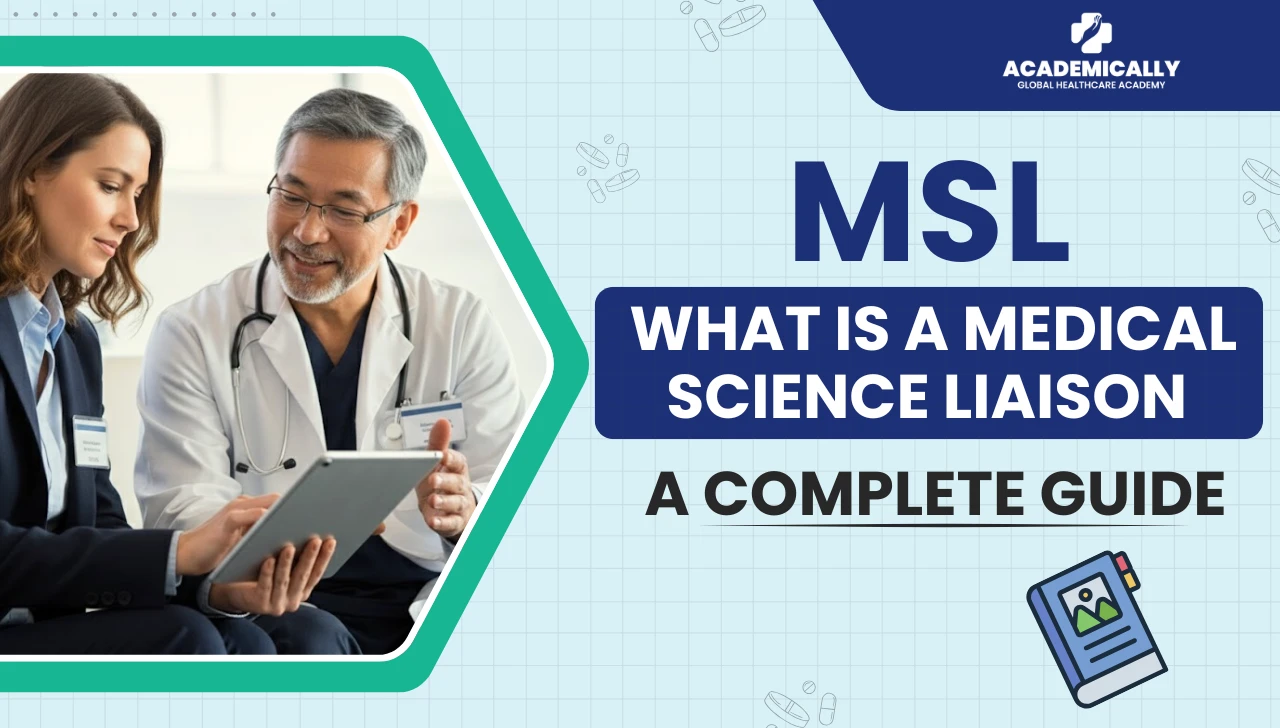Health Economics and Outcomes Research, or HEOR, is one of the fast-growing functions in pharmaceutical and life sciences. HEOR teams build the evidence that shows how a medicine or medical device performs in the real world and whether it improves quality of life. They understand how much it costs for health systems and how its value compares to alternatives. That evidence helps payers, agencies, clinicians and policymakers decide who should get a treatment and at what price.
This guide walks you through what HEOR professionals do and the common job types. You will also get to know the skills employers want and realistic salary clues.
Read on to find out more about how to begin or grow a career in HEOR.
What Is HEOR and Why It Matters
HEOR studies help decision-makers understand the economic and human impact of healthcare interventions.
It focuses on three key outcomes:
| Focus Area | Description | Example |
| Health Economics | Compares the cost vs. benefits of treatments | Cost-effectiveness of a new cancer drug vs. standard therapy |
| Outcomes Research | Evaluates patient outcomes and quality of life | Real-world survival data after treatment |
| Value Communication | Translates findings for stakeholders | Value dossiers for reimbursement bodies. |
Why pharma values HEOR:
- Proves a therapy’s value for money
- Supports pricing and reimbursement decisions
- Guides market access strategies
- Influences policy and formulary inclusion
In simple words, HEOR makes science make sense financially.
HEOR Job Roles in Pharma
HEOR teams include economists, data scientists, and communicators. Here’s what common job titles look like:
| Job Title | Key Responsibilities | Typical Qualification |
| HEOR Analyst / Associate | Data analysis, literature reviews, report writing | Master’s in Economics, Public Health, or Pharmacy |
| Health Economist / Modeler | Builds cost-effectiveness and budget impact models | MSc/PhD in Health Economics or Statistics |
| Outcomes Research Scientist | Conducts real-world and patient-reported outcome studies | MPH, Epidemiology, or Biostatistics |
| RWE (Real-World Evidence) Scientist | Uses claims, EMR, and registry data for comparative studies | MSc/PhD with R or Python skills |
| HEOR Manager / Director | Leads HEOR strategy, interacts with payers and access teams | Advanced degree + 6–10 years’ experience |
| HEOR Writer / Value Communications Lead | Develops dossiers, publications, and payer materials | Life-science degree + writing experience |
Top Employers:
Pfizer | Novartis | GSK | AstraZeneca | Roche | IQVIA | Parexel
Core Skill Requirement
Employers seek a mix of technical and soft skills. The work requires both methodological skills and business awareness. Key skills include:
Quantitative methods
- Health economics
- Biostatistics
- Decision analysis
- Modelling
Real-world data handling
- Familiarity with claims/EHR data
- Observational study design
- Causal inference
Programming and tools
- R
- Python
- SAS
- Excel
- VBA
- Model-building platforms
Communication
- Clear writing for payer dossiers
- Plain language for stakeholders
Business and healthcare system knowledge
- How payers, agencies and procurement work
- Business acumen
- Systems understanding
Soft skills
- Teamwork
- Project management
- Stakeholder engagement
HEOR hiring managers often say they can teach tools, but not curiosity or clear thinking. Stay curious about why your model matters.
Education and Training Pathways
Most professionals enter HEOR through postgraduate education or research experience.
There is no single route, but here are the common educational paths:
| Level | Degree Examples | Entry Role Target |
| Bachelor’s | Pharmacy Economics Life Sciences | Research Assistant Junior Analyst |
| Master’s | MPH MSc in Health Economics Pharmacoepidemiology | HEOR Analyst Associate |
| PhD | Economics Biostatistics Public Health | Senior Scientist Modeler |
| Certificates / Workshops | Academically PG certificate in HEOR University HEOR certificates | Upskill or career switch |
Career Growth and Hierarchy
HEOR offers multiple career tracks. They can be technical, scientific, or strategic.
| Career Stage | Role Examples | Years of Experience | Focus |
| Entry Level | Analyst, Associate | 0–2 years | Data analysis Literature review |
| Mid Level | Scientist, Manager | 3–6 years | Model building Project leadership |
| Senior Level | Director, Lead Economist | 7–10+ years | Strategy Payer engagement Team management |
| Leadership | VP / Head of HEOR / Market Access | 10–15+ years | Global strategy Evidence generation oversight |
You can also specialize in:
- Cost-effectiveness modelling
- RWE analytics
- Patient-reported outcomes
- Market access strategy
Some professionals later move into different roles in:
- Policy
- Consulting
- Biotech leadership
Salary Range
Salaries depend on geography, education, and employer type. Below is an approximate range based on public data:
| Role | U.S. Annual Salary (USD) | U.K. (GBP) | India (INR per annum) |
| HEOR Analyst | 70,000–95,000 | 38,000–50,000 | ₹6–10 LPA |
| Health Economist | 90,000–120,000 | 45,000–65,000 | ₹10–16 LPA |
| Senior Manager / Director | 130,000–200,000 | 70,000–100,000 | ₹18–30 LPA |
Consulting firms often offer faster salary growth. Pharma companies provide better stability and benefits.
Typical Day In An HEOR Job
HEOR work blends analysis with communication. A normal week could include:
- Cleaning and analyzing real-world datasets
- Building or validating a cost-effectiveness model
- Writing sections of a Global Value Dossier (GVD)
- Meeting with Market Access, Medical Affairs, and Regulatory teams
- Reviewing literature for new evidence
- Preparing a slide deck for internal decision-makers or external payers
It’s a role that rewards both technical rigour and clarity in storytelling.
How to Enter HEOR
Getting into HEOR can feel complex, but it’s achievable with focus. Here’s a clear roadmap:
- Build your foundation: Learn basic health economics and statistics.
- Master a programming tool: Start with R or Python.
- Learn through examples: Study cost-effectiveness models.
- Do a small project: Replicate a model or analyze open-source RWE data.
- Network: Attend ISPOR meetings and join LinkedIn HEOR groups.
- Tailor your resume: Highlight analytical, modelling, and communication skills.
- Apply widely: Analysts are needed everywhere, from pharma to consultancies.
Keep a small digital portfolio. Even one simple model or project can impress employers.
Tips To Stand Out
- Combine technical strength with clear writing.
- Know the health system you target (U.S., UK, India, etc.).
- Learn a reproducible workflow (version control, code notebooks).
- Publish or present: Visibility helps landing higher-impact roles.
Future Outlook of HEOR Careers
The global HEOR market is expanding rapidly as healthcare systems demand value-based evidence.
Emerging trends include:
| Trend | Description |
| Digital Health & AI Integration | Using AI to model treatment outcomes and simulate scenarios |
| Patient-Centric Evidence | Focus on quality of life and patient-reported outcomes |
| Real-World Data Explosion | Growing use of EHR and claims data for value demonstration |
| Cross-Functional Collaboration | HEOR now influences regulatory and clinical development |
The demand for professionals who can combine data analytics with health economics is only expected to rise.
Start a Career in HEOR Today
HEOR offers a rewarding, high-impact career. Here, technical work directly shapes patient access to therapies. If you enjoy
- Quantitative problems
- Real-world data
- Communicating evidence
HEOR is a field worth pursuing. What’s even better is that now you can join Academically’s Post Graduate Certificate Course in HEOR to become job-ready. HEOR is the career you need today. Start your search today and enjoy a fulfilling career tomorrow.





